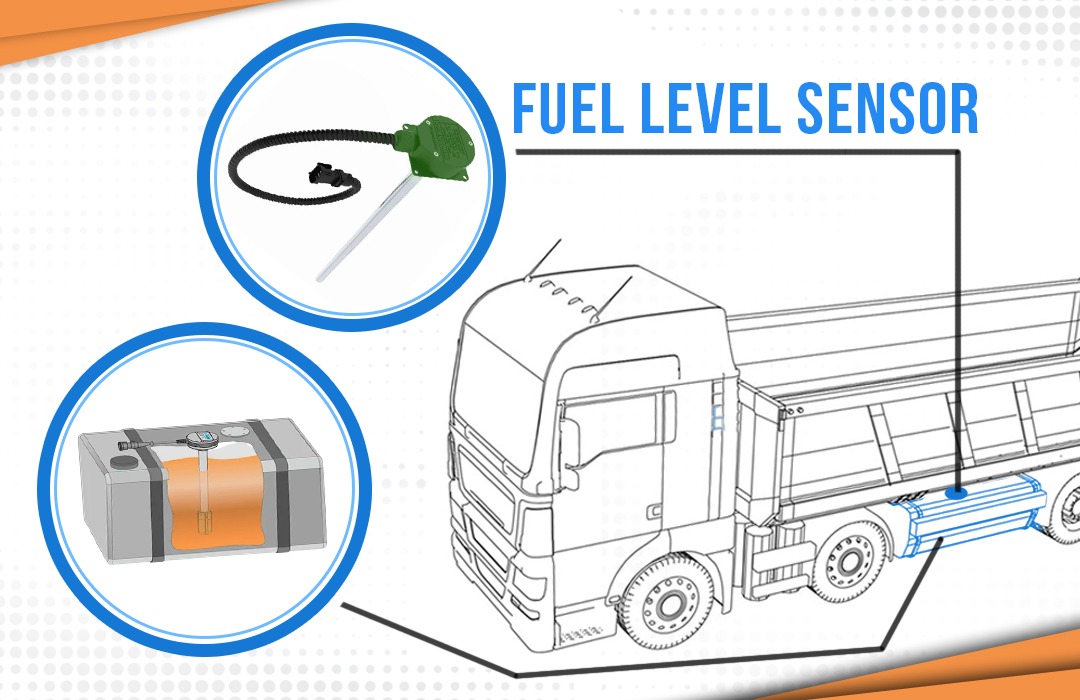
Tracking SolutionWritten By: Suman Kumar Paul
The dependency of every fleet business is extremely high on its vehicles and assets. Furthermore, regulating fuel-related expenditures is highly challenging as fuel consumption varies with terrains and other geographical conditions. Climbing fuel bills are never easy to cope with. Furthermore, issues such as fuel leakage, engine idling, fuel pilferage, and fuel siphoning are difficult to control manually.
This is where the use of a fuel level sensor comes into the equation. In this blog post, we will discuss what a fuel level sensor is and why you need one for your fleet business. In addition, we will be covering some factors to consider before purchasing a perfect fuel level sensor to suit your business needs.
What is Fuel Level Sensor ?
A fuel level sensor (FLS) is an electronic device used to continuously monitor fuel usage in various types of automobiles and stationary objects. FLS monitors the fuel levels both in stationery and vehicle tanks. With the help of fuel statistics, you can obtain statistics that you had never: Real-time Fuel consumption data, as well as highly accurate information on refilling and draining.
In combination with IoT (Internet of Things) tracking and monitoring technologies, fuel level sensors help in the gathering of the following data:
In addition, an FLS does not interfere with any of your vehicle's electrical systems when mounted in the fuel tanks. These sensors are positioned such that the sensitive element's axis is as close to the tank's geometric center. The sensor is then calibrated as per tank size. The data is transmitted to the software platform once the setup is complete and integrated into the monitoring system.
Why your Fleet Business needs a Fuel Level Sensor ?
Listed below are some of the key advantages of incorporating a fuel level sensor in your fleet business to extract the best out of your vehicles:
Improved Transparency to Fuel Metrics
By automating your fuel monitoring procedure, a fuel level sensor can minimize the risk of human error. You will obtain quick access to real data about fuel-related activities including fuel consumption, refilling, and drainage by installing a fuel level sensor. These data will potentially help in making better-informed decisions considering the fuel budgets for your fleet.
Controlled Fuel Cost
You can regulate and manage funds for your fuel more efficiently if you regularly track your fuel burn, refilling, and draining patterns.
Reduced Fuel Pilferage and Theft
Fuel fraud is a genuine problem in the fleet business. With thieves becoming more inventive, fleet managers need to keep up. A fuel level sensor is designed to inform users in the case of any fuel-related misconduct. This minimizes your probability of losing money due to fuel theft, siphoning, or pilferage.
Improved Vehicle Performance
You can organize your vehicles' maintenance practices more accurately if you remain updated with their exact fuel usage rate. Planned inspection and maintenance will boost the productivity of your vehicles by eliminating the risk of excessive wear and tear.
Top 5 Factors to Consider Before Choosing a Fuel Level Sensor
Installing a fuel-level sensor improves fleet operational strategy and provides the fleet an opportunity to perform. Keeping this in mind, here are five factors to consider before acquiring a fuel level sensor for your fleet:
Vareli Fuel Monitoring System: Optimizing Your Fleet Performance
VTPL's objective is to facilitate fleet owners to automate and manage their day-to-day fuel monitoring tasks. If the fuel economy of your vehicle is poor, consider setting up a VTPL fuel management solution to eliminate fuel pilferages and other anomalies.
There are multiple factors that affect fuel economy; developing expertise in these areas will support real-time fuel efficiency optimization and can minimize fuel expenses.
In Short, the main objective of deploying a Fuel monitoring system into fleets is to deliver fleet managers with real-time control over their vehicle while it is operating. This smart and intelligent amalgamated technology not only reduces fuel wastage but also streamlines the whole operational process. For more details or in-person consultation drop a mail at info@vareli.co.in.
TAGS - fuel management system fuel tracking solution
See Also - Get Comprehensive Fleet Performance Indicators on a Single Dashboard